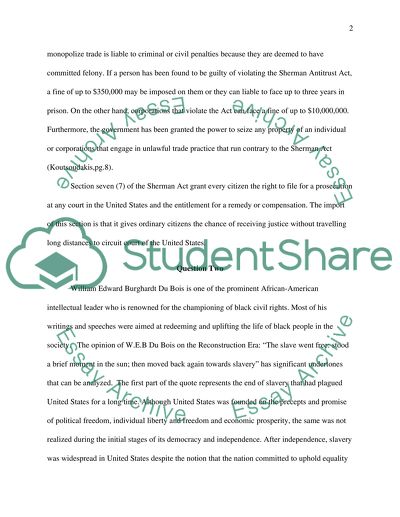Sherma- Anti- Trust Act (1890) Essay Example | Topics and Well Written Essays - 1000 words. Retrieved from https://studentshare.org/history/1449809-sherma-anti-trust-act
Sherma- Anti- Trust Act (1890) Essay Example | Topics and Well Written Essays - 1000 Words. https://studentshare.org/history/1449809-sherma-anti-trust-act.


